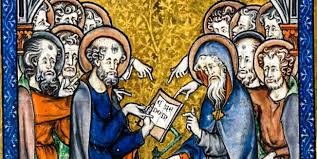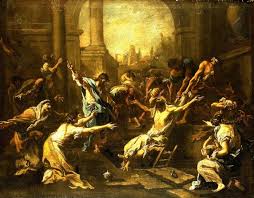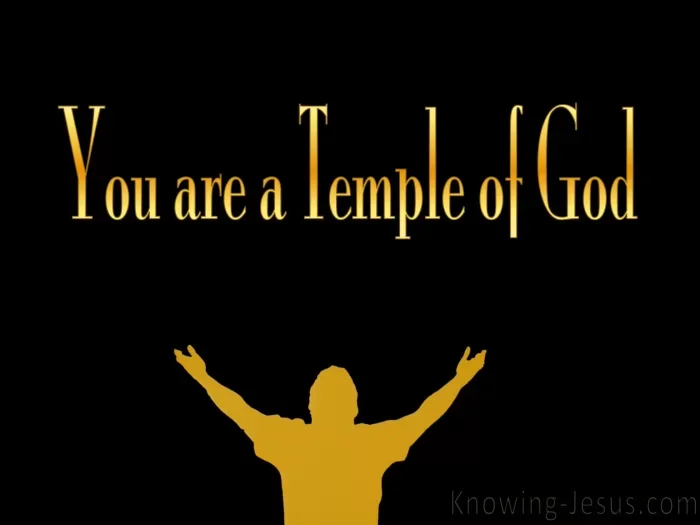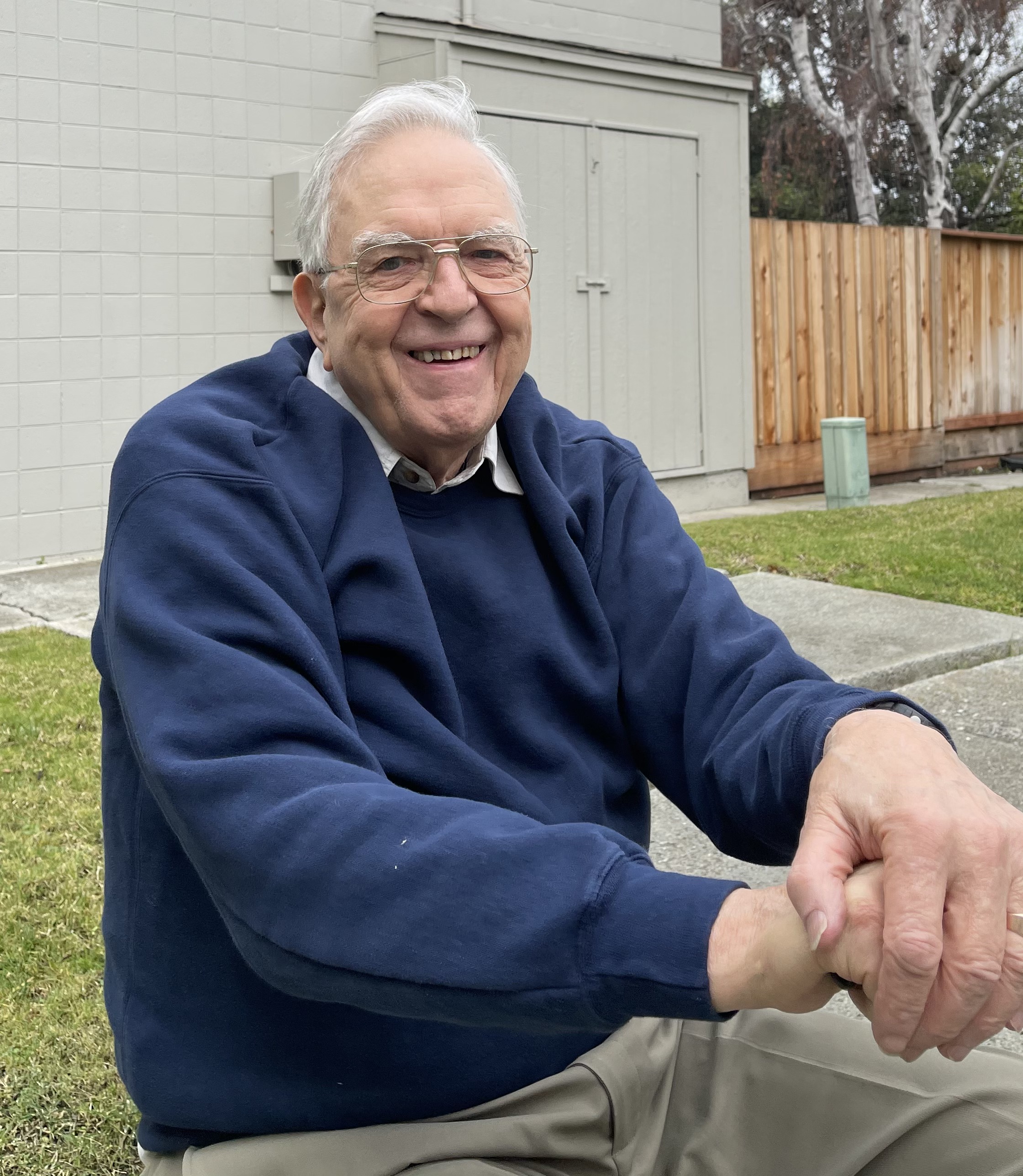
The Quickening
|
Resurrection power is like no other power on earth. It is unique, and has no possible rival. It is a power that operates in the midst of death and despair. It operates when the entire world seems, bleak, dead, and barren. It explodes into life and light in the midst of an empty, dark cemetery--for that is where it was first demonstrated. When Jesus Christ was resurrected, He came out from among the dead. So if you learn to live by resurrection power, you can experience life, hope, and vitality when everything and everyone around you is dead, hopeless, and lifeless.
Resurrection power is a "stealth" power--silent and invisible. It makes no sound, it operates below the radar scope of this world. Other forms of power are noisy and obvious--they pound, pulsate, throb, hum, roar, buzz, or explode. But resurrection power is silent. It accomplishes its purpose without ostentation, flash, pizazz, or neon lights. Christians who live by resurrection power don't use it to dazzle others or advertise its affects. That's why the distinguishing marks of Christian character are humility and servant-hood rather than showiness. Genuine Christians demonstrate the reality of resurrection power through the quiet evidence of their lives: love, joy, peace, endurance under hardships, kindness, goodness, faithfulness, gentleness, and self-control.
God has a marvelous way of illustrating spiritual truth through nature. He demonstrates His resurrection power every year through every returning springtime. Out of the cold, barren, death of winter, God brings new life, color, warmth, and glory by means of a quiet, invisible force which gradually transforms the whole landscape into a fairyland of beauty.
Resurrection power is irresistible. It cannot be thwarted or turned aside. It takes absolutely no account of any obstacles thrown in its path, except to use them for further opportunities to advance its cause. When Jesus came bursting from the grave, He didn't give the slightest attention to the obstacles man had placed in His way. There was a large stone in front of His tomb; He passed right through it. He was wrapped in yard after yard of linen cloth; He left the grave clothes undisturbed behind Him. There were Roman guards in front of His tomb; He ignored them. He took not the slightest notice of the decrees of Caesar or the orders of Pilate or the fulminations of the Jewish priests. --Ray Stedman, According to the Power. |
| |

The Quick and the Dead

The Quick and the Dead is an English phrase originating in William Tyndale's English translation of the New Testament (1526), "I testify therefore before god and before the lorde Iesu Christ which shall iudge quicke and deed at his aperynge in his kyngdom" [2 Timothy 4:1], and used by Thomas Cranmer in his translation of the Nicene Creed for the first Book of Common Prayer (1540). In the following century the idiom was referenced both by Shakespeare's Hamlet (1603) and the King James Bible (1611). More recently the final verse of The Book of Mormon (first published in 1830), refers to "...the Eternal Judge of both quick and dead".
…The phrase is found in three passages in the 1611 King James version of the Bible: in the Acts of the Apostles (Acts 10:42), Paul's letters to Timothy (2 Timothy 4:1), and the First Epistle of Peter. The last reads: "For the time past of our life may suffice us to have wrought the will of the Gentiles, when we walked in lasciviousness, lusts, excess of wine, revelings, banquetings, and abominable idolatries: Wherein they think it strange that ye run not with them to the same excess of riot, speaking evil of you: Who shall give account to him that is ready to judge the quick and the dead". This passage advises the reader of the perils of following outsiders in not obeying God's will. Specifically it warns that those who sin, both the quick and the dead, will be judged by Jesus Christ. In other words, it implies that God is able to act on the sins of a person whether that person is alive (quick) or has passed into the afterlife (dead).
In the Nicene Creed the phrase appears in the following passage (taken from the Book of Common Prayer, 1662).
[He] ascended into heaven,
And sitteth on the right hand of the Father.
And he shall come again with glory to judge both the quick and the dead.
In the Apostles' Creed the phrase appears in the following passage (also taken from the 1662 Book of Common Prayer).
He ascended into heaven,
And sitteth on the right hand of God the Father Almighty;
From thence he shall come to judge the quick and the dead.
Etymology: 1: to quicken something
2: to come to life especially to enter into a phase of active growth and development seeds quickening in the soil
3: to reach the stage of gestation at which fetal motion is felt
4: to shine more brightly watched the dawn quickening in the east
5: to become more rapid "her pulse quickened at the sight." The use of the word quick in this context is an archaic one, specifically meaning living or alive; therefore, this idiom refers to 'the living and the dead.' The meaning of "quick" in this way is still retained in various common phrases, such as the "quick" of the fingernails, and in the idiom quickening, as the moment in pregnancy when fetal movements are first felt.) Another common phrase, "cut to the quick," literally means cut through the dead, unfeeling layers of the skin to the living, sensitive tissues below.
(Wikipedia)
The pulse "quickens" when something exciting happens to us. After a long dreary winter in Northern Latitudes, nature quickens when spring arrives. Yeast added to bread dough "quickens" the dough. When a dead person is brought back to life, his spirit returns, the heart starts, and his corpse springs to life. He is quickened.
A great quickening of God's people is expected at the time of the Rapture. The many millions of Christians who have died since Pentecost AD 30 will first be raised from the dead.
In fact there are three events happening all at once. (1) The quickening of those who have previously died in Christ. (2) A great jolt by the Archangel Michael awakening Israel from 2000 years sitting on the sidelines, and (3), the catching up of all Christians alive at the time. The total number involved will probably be several billion persons. However, with other upheavals going on in the world at that time, the disappearance of some may not be noticed, or may even be attributed to an alien abduction event. See Rapture Shock, Rapture Prep and If the Rapture Happened Today.
"For the Lord himself, with a cry of command, with the archangel’s call and with the sound of God’s trumpet, will descend from heaven, and the dead in Christ will rise first. Then we who are alive, who are left, will be caught up in the clouds together with them to meet the Lord in the air; and so we will be with the Lord for ever. Therefore encourage one another with these words." (1 Thessalonians 4:16-18)


Lazarus, The Man Who Died Twice
by Ray Stedman

Last week we looked together at the story of a man in the Old Testament whose history began with his birth and what his mother named him when he was born. But today we are moving to the New Testament and looking at the story of a man whose history begins not with his birth, but with his death. And it can hardly be accident or coincidence that the matters related about this young man trace for us the development of Christian experience from the beginning until the end. The young man is Lazarus, and his story is found in the 11th and 12th chapters of John’s gospel. The first fact that faces us in the life of this man Lazarus is the somber truth that Lazarus is dead. Jesus himself declared it in the 11th chapter of John, verse 13. We read,
Now Jesus had spoken of his death, but they thought he meant taking rest in sleep. Then Jesus told them plainly, Lazarus is dead; and for your sake I am glad that I was not there so you may believe. But let us go to him. Thomas, called the Twin, said to his fellow disciples, Let us also go that we may die with him. (John 11:13)
You will remember the simple story that’s recorded here of Mary and Martha and Lazarus, the little family in Bethany outside of Jerusalem with whom Jesus loved to be. And we are told here in John’s account that Lazarus was very ill. Jesus, with his disciples, was down in the Valley of Jordan some forty or fifty miles away, and when Mary and Martha saw how desperate Lazarus’ case was they sent word immediately to Jesus. It took perhaps a day or so for the message to reach him, and we read Jesus received the news that Lazarus was ill. John says when he heard that he was ill He stayed two days at the place where he was, one of the most startling verses in the New Testament. When we receive news that some dear one is ill, this to us is an emergency condition. It involves flashing red lights and screaming sirens and we hasten to be there. But when Jesus received the news, he waited deliberately two more days. Then he announced to his disciples that Lazarus was asleep and they misunderstood him and thought he meant he had fallen into a refreshing sleep. But in order to correct them he said to them plainly Lazarus is dead.
The fascinating thing about this account is that it is evident that Jesus deliberately waited knowing that Lazarus was dead. Or as you put the pieces of this story together it is evident that Lazarus was already dead when the news arrived to Jesus that he was ill. Somehow by the revelation of the Father, by some sixth sense or whatever it may be termed, Jesus knew that Lazarus was dead, even at that moment. And instead of going back to Mary and Martha to comfort them in their anguish, he deliberately waited two more days and then announced that he was leaving. Now there is no possible explanation for this delay except that our Lord was waiting to make it clear that Lazarus was absolutely, unquestionably dead. In other words that he was not in a trance, he had not entered into a coma, that there was no possibility of doubt that he was dead. And you remember as the story goes on, when he did come, Martha, in her blunt fashion summed the whole thing up unmistakably when she said, Behold, he stinketh. He’s definitely dead.
Now it’s exactly at this point that the story of redemptive love begins in human life, for the scriptures announce to us that this is the condition of mankind in his fallen condition. In his fallen state he is dead in trespasses and sin. You know that pronouncement by the apostle Paul in his letter to the Ephesians where he says that very statement. We who are dead, he says, in trespasses in sin. I find that many people have difficulty at this point. How can this be?
I remember when I was a boy up in the remote section of Montana where very few strangers ever came, one day a man appeared on our doorstep in the remote ranch up there with a little phonograph tucked under his arm. We didn’t know who he was, and he gave us his name and announced that he would like to play a phonograph record for us. Well, even the phonograph was a novelty in that section of the country so we all gathered about to listen. We discovered later that this man was a Jehovah’s Witness and he had a phonograph recording of a message by Judge Rutherford, who was at that time the leader of the Jehovah’s Witnesses. He has since been relegated to the forgotten places by the Jehovah’s Witnesses. He played this record for us, and the title of it, I’ve never forgotten, was Millions Now Living Shall Never Die. We listened with eagerness and excitement to this strange recording and this announcement that millions now living shall never die. I don’t remember what the record said, I only remember the title. But since then in reading through the scriptures I’ve been impressed by the fact that though that title is not necessarily true, it is true that millions now living are already dead. And that’s what Lazarus’ death pre-figures for us here.
I wonder to how many who say something like that, Millions Now Living Are Already Dead, it’s obvious that we are using ‘dead’ in two different, but related meanings. You cannot, of course, be physically dead and physically alive at the same time, one excludes the other. But you can be physically alive as far as experiencing the full intent of human life, as far as enjoying the presence of God, which makes life rich and full and satisfying, and fulfilling all the possibilities that God had in mind when He created humanity. However, it is possible to be physically alive, but as far as these things are concerned to be absolutely dead, and this is the sense that the scripture uses that phrase, to be dead in trespasses and sin.
I’m sure you recognize that in this sense dead really means futility, emptiness, meaninglessness, life without life, shallow, frustrating, boring. In this kind of living, pleasures give no real pleasure at all. Riches are merely another form of poverty, power becomes a major weakness. Life is a living wasteland in which we simply hope to get through the hours the best we can. And I don’t need to point out to you that there are thousands, millions who live exactly at this place in this day. When they wake up in the morning instead of Good morning, God, it’s Good god, it’s morning!Happiness is always around the next corner. The good ole days are always in the far distant past. The present is nothing but frustration and toil and anxiety. This is a living death, alive but dead as the Bible declares. And people who are in this condition have two unmistakable marks of death continually evident about them.
There are two signs that mark death: helplessness and corruption. These are the signs that are so vastly evident in our day in so many lives. These people discover that no matter what they try, nothing basically changes the pattern of their life. Adventure, romance, power, wealth, education, service, whatever it may be, it seems to work for a while. There’s the excitement of something new, something different, but sooner or later it begins to wither and die and life goes dead on their hands once again. They are simply helpless to change their condition; that’s the first mark of death, helplessness. Nothing seems to change the basic pattern. The second one is corruption. It’s evident in the lives of such that there is a moral deterioration going on. They find themselves doing what they once swore they would never do as they look back on their early ideals of youth. Those ideas and ideals have long since faded and died. And they have become cynical and distrusting, even perhaps bitter and hard. Sometimes the moral stench of their own lives becomes more than they themselves can bear.
Now is this your life? It could well be. For millions exist in this condition today, exactly as the Bible describes it, dead as far as all that life really means, and was really intended to be for them, and they have sunk into the meaningless routine of filling their bellies three times a day and going to work and eating and sleeping, and that’s the whole of life. As someone once put it,
Into this world to eat and to sleep,
And to know no reason why they were born,
Save to consume the corn, devour the cattle, flock and fish,
And leave behind an empty dish.
Is this your life? Then you need to look at the second fact that we have pictured for us here about Lazarus. Not only was Lazarus dead, but the story is here in our Bibles only because of the great fact that Lazarus was raised. Look at verses 38 through 43.
Then Jesus, deeply moved again, came to the tomb. It was a cave and a stone lay upon it. Jesus said, Take away the stone. Martha, the sister of the dead man, said, Lord by this time there will be an odor, for he has been dead for four days. Jesus said to her, Did I not tell you that if you believe you would see the glory of God? So they took away the stone and Jesus lifted up his eyes, and said, Father I thank thee that thou has heard me. I knew that thou hearest me always, but I said this on account of the people standing by that they may believe that thou hast sent me. When he had said this he cried with a loud voice, Lazarus, come out! And the dead man came out.
I think it was St. Augustine that said first that if Jesus had not called him by name, Lazarus, he would have emptied every graveyard in the vicinity. Wherever the spirit of Lazarus was, having fled from the body four days before, he heard the voice of Jesus and returned into his body. The great infidel lecturer of a previous generation, Colonel Robert Ingersoll, standing by the body of his brother whom he loved very dearly said these words. Gathering up his own philosophy of life, he said:
Life is a cold dark veil. Between the ice clad peaks of two eternities we strive in vain to see beyond the heights. We cry out loud and the only answer is the echo of our wailing cry.
But when Jesus of Nazareth stood at the tomb of Lazarus and cried out loud with a great voice, there was no mere echo. The dead man came forth! He that was dead was made alive. Now this is precisely what happens when a man or a woman, a boy or a girl, is converted to Christ. He is made alive; there is an impartation of life that can be explained in no other terms than a startling instantaneous resurrection, an impartation of life to one who is dead. There is a totally new dimension given to such a person. In a moment, the Bible says, he is passed from death into life, from the kingdom of darkness into the kingdom of the Son of His Love. Many of us here have experienced this, we know how real this is when there is the commitment of the will to Jesus Christ, the surrender to Him as Lord, the recognition that He has come to do this very thing, that marvelous transformation which gives unto us a new love and a new purpose, and a new outlook on life...
There are millions who can give testimony to that, that when they met Jesus Christ, this was the beginning of life, they were made alive from the dead, they had a new purpose, and a new outlook. I think Horatius Bonar sums it up so wonderfully, that in Him we sometimes sing:
I heard the voice of Jesus say, Behold I freely give
The living water; thirsty one stoop down and drink and live.
I came to Jesus and I drank of that life-giving stream;
My thirst was quenched, my soul revived and now I live in Him.
Here’s a man made alive from the dead, and this is possible as an experience in life today.
Now the third fact that immediately confronts us is that, though he was raised, yet it is also evident that Lazarus is bound. Look at verse 44. The dead man came out, his hands and feet bound with bandages and his face wrapped with a cloth. What a sight that must have been! Unquestionably alive, but unmercifully bound, he couldn’t walk; he evidently had to hop along like a contestant in a sack race, out of the tomb. He couldn’t see clearly; his face was still swaddled in bandages. He was no longer corrupt but he was still hopeless, and do you recognize there are thousands of Christians still in this condition today?
Perhaps this is describing you? There are unmistakable marks of new life in Christ in your experience, but you are still so unmercifully bound, you cannot see well, you are very confused about matters of guidance and how to walk with the Lord and you can’t much distinguish between good and error. You cannot walk very well, you stumble and fall all the time, up and down, up and down. Is this your experience? It may be. There’s so much potential evident in your life but you are still so pathetically hampered by the grave clothes of the old life, the same jealousies, the same frustrations, the same old lusts, the same bad habits, the same worries and fears that were in your heart before you knew Christ. You can’t deny that you know Him, you know there’s been a change, but the grave clothes are still there. It is quite possible to experience this. For Lazarus it was only a few minutes. For you it may have already been a few years, or even a few decades that you have been in this experience. What a pitiful existence it is, especially when a fourth fact is imminently possible in your life.
The fourth thing about Lazarus we’re told, is that Lazarus is loosed. Look at the latter part of verse 44: Jesus said to them, Unbind him and let him go. You’ll notice this takes a second command of Christ. Here he enlists the aid of others. He alone can give life, but others can help in the matter of this gift of liberty in the Christian experience.
If you have read the New Testament at all, you’ll recognize that this is that second view of the cross in which we see that Jesus Christ not only died for our sins, but that, as Paul puts it, we died with Him. And therefore sin shall not have dominion over us; we’re no longer to be bound by these things. The basis of our activity, we discover, is no longer I’ll try, as so many of us say, but I’ll trust. No more self-effort now, but His activity in us. We learn the great truth in Romans 7 and 8, as we sang this morning Not I, but Christ, instead of that futile, pathetic, pitiful struggle of so many Christians to make it Christ and I, partners together, which will never work. It’s not I, but Christ, no longer a struggle, but rest; no longer my efforts for Him, but His efforts through me; no longer a failure, but a triumph. As Paul says, Thanks be unto God who in Christ always, always leads us in triumph.
Have you discovered this yet? Have you moved into this area of Christian living? For this is as much a part of God’s intention for you as that you should have been made alive from the dead in the first place. It was never the intention of Jesus Christ to raise Lazarus from the dead and leave him stumbling about, bound in the grave clothes of the old life. Never! A woman sat in my study this last week and with an almost visible light on her face, she said Oh what a relief to discover, after years of Christian frustration, bound by fear, to be set free at last. She said, All my Christian life I have been so troubled by fear that I couldn’t even drive a car by myself. I didn’t dare stay in a room alone by myself. Everything was a problem to me, everywhere I went I was filled with anxiety and fear. But she said, To be able to get in a car and drive to Monterrey as I did yesterday, and back alone, is simply glorious. Set free, because she had discovered the full intention of Jesus Christ for her Christian experience of life, unbinding and letting go.
But there’s still more. In Chapter 12 you’ll get another glimpse of Lazarus in the first two verses. We here see Lazarus is feasting: Six days before the Passover, Jesus came to Bethany where Lazarus was, whom Jesus had raised from the dead. There they made Him a supper. Martha served, but Lazarus was one of those at the table with Him. You remember that great invitation verse in Revelation 3:20, where Jesus says, Behold, I stand at the door and knock. If any man hears my voice and opens the door, I will come in to him, that’s the beginning, and will sup with him and he with me. That is, we will feast together. We’ll eat together in fellowship.
You see the Gospel not only includes the promise of life in Christ, and liberty in Christ, but also liberality, enrichment, the joy of unbroken fellowship with Jesus Christ. Now let me immediately add that this is not mere theological talk. This is not simply preacher talk that you get on Sunday. This is an actual practical experience, quite possible in every Christian life. And spelled out in the simplest of terms it means such things as comfort in sorrow, insight in perplexity, joy through a veil of tears, courage in danger, light in darkness, beauty rising up from ashes. A mellowing, broadening, deepening walk in the faithfulness of God, where you discover His mercies are fresh every morning and His word is like manna to the soul. This is feasting with the Lord Jesus Christ!
But there is yet a final scene here about Lazarus in this 12th chapter, verse 9, When the great crowd of the Jews learned he was there, they came, not only on account of Jesus, but also to see Lazarus, whom He had raised from the dead. So the chief priests planned to put Lazarus also to death, because on account of him many of the Jews were going away and believing in Jesus. Here is a scene that pictures Lazarus being used, mightily used. Here is a great crowd that came out to see Lazarus. They not only came to see Jesus, they came to see Lazarus. They didn’t come to hear him because the interesting thing is Lazarus never told a thing about what his experience was beyond the grave. Whether he didn’t remember it, or whether he was simply, as Paul said about himself, forbidden to speak about these things. Paul said it’s not lawful for a man to utter these things. Whatever it was Lazarus, evidently never said a word about what conditions were like beyond the grave.
But these people didn’t come out to hear that, they came out to see this man, this remarkable man who was raised from the dead. In other words, in this little insight we gain here, Lazarus has become what every Christian can be. A disturbing element which men can not ignore, they can never leave him alone. He upsets them; they have to make a decision about him, one way or the other. Contact with Lazarus here meant either they believed or they belittled, one or the other. Did you notice that there were some that came to believe? Many of the Jews were going away and believing on him. But there was that crowd that wouldn’t believe and they planned to put Lazarus also to death. Imagine putting a man to death that had just been raised from the dead! But so vicious is this hatred, awakened by the testimony of a man standing before them, that they intend to put him to death again. And you can see here what a vital, unforgettable impact Lazarus is making on the people of his day. They couldn’t leave him alone; they had to make a decision. What a disturbing man he was!
Are you praying that God might use you like this? Let me make something very clear. I hope you don’t gather from this that you have to wait until you have gone through all the preparatory stages of Christian experience before God can begin to use you. This is not true. The preparation of Jesus Christ in the human life is an in-service training. It begins immediately, to use His disciples and send them out even though they’re woefully ignorant. They have much to learn, as He Himself tells us. It is quite possible, and I hope it is your experience that God has begun to use you already. Even if you are a newborn babe in Jesus Christ, you can be used. But that use is always limited and will never come to its full manifestation of possibility and potential until, like Lazarus, you have passed through these intervening stages and come to what Paul calls maturity. Then once we learn the great basis of Christ life in us, and we cease to depend on our own self effort in this respect, we move into that place where we become the instruments of God’s use. And almost every action, every word, every circumstance we enter becomes by our very presence there, a challenge to those around about, where they have to make a decision one way or the other, where the life itself is the challenge, as Lazarus was the challenge here in this scene in Bethany.
Let me ask you to do this: first of all, find out where you are in this panoramic view. We have in the life of Lazarus a Christian experience. Where are you there? Are you still dead in trespasses and sins? Have you been born again? Have you never come to Jesus Christ and received life? Or have you come and you are still bound? Are you still under the same domination of power and habits and thoughts that you always have been? You are still struggling with the same old routine of evil things in your life that hamper you and fetter you and hold you in demand. Or having passed beyond that, have you yet entered into the stage of feasting with the Lord? Where you have not only discovered how to walk with him but you are daily experiencing Him in every way you move and everything you do? If so then you are very close, of course, to this place of being widely used by the Lord in unmistakable impact upon those all around. But first find out where you are.
Have you noticed that this is the first question in the Bible? When God came searching for man in the Garden of Eden, the first question was, Where are you? Where are you? You will never make any progress in your spiritual life until you answer that question. --The Man Who Died Twice by Ray Stedman.

The Seat of Sin in Man is in the Body

And if Christ is in you, the body is dead because of sin,
but the Spirit is life because of righteousness.
But if the Spirit of Him who raised Jesus from the dead dwells in you,
He who raised Christ from the dead will also give life to your mortal bodies
through His Spirit who dwells in you. (Romans 8:10,11)
Man is a tripartite being, according to the Bible. The outermost part, the body, gives us access to the physical world. We'd be invisible without our bodies on.
The "soul" is the seat of the mind and the emotions and the will. The will is where we make choices--it's the gatekeeper of the spirit.
The innermost part of man is the spirit.
Man as the Temple of God. gotquestions.com
May God himself, the God of peace,
sanctify you through and through.
May your whole spirit, soul and body
be kept blameless at the coming of our Lord Jesus Christ.
The one who calls you is faithful and he will do it.
(1 Thessalonians 5:23-24)

THE TEMPLE AND MAN
The apostle said in 1 Corinthians 3:16, "Do you not know that you are the temple of God, and that the Spirit of God dwells in you?" After reading this verse, we can see that the apostle was inspired to consider man a temple. Just as God dwelt in the temple in time past, in the same way the Holy Spirit dwells in the believers. The Bible compares man to the temple. In doing so it depicts the three elements of man most conspicuously.
We know that the temple is divided into three parts. The first part is the outer court, which everyone can see and into which everyone can go. All outward worship is offered to God here. Further in, there is the Holy Place. Here, only the priests can enter. In the Holy Place the priests offer the blood, the oil, the incense, and the bread to God. Although they are very close, they are not the closest, because they are still outside the veil and cannot enter into God’s presence. God dwells in the Holy of Holies from which He radiates His infinite glory. The Holy of Holies is otherwise dark. No one can come before Him. Although the high priest is allowed once a year to enter the Holy of Holies, this only demonstrates all the more that before the rending of the veil there was no one within the veil.
Man is a temple of God. Within man there are also three parts. The body is like the outer court; it is outside, and its life is seen by all. It is here that man should obey all God’s commandments. It is also here that God’s Son died for man. Further in, there is man’s soul, which is the inward life in man; it includes man’s feelings, will, and mind. This is the Holy Place to a regenerated one. His love, thoughts, and desires are all here. In this place there is much light, everything is clear and obvious, and the priests come in and out to serve God. However, further in, there is the Holy of Holies behind the veil, which is unreachable by human light and is a place invisible to the human eyes. This is "the secret place of the Most High" (Psalm 91:1). It is the habitation of God, a place that no man can reach unless God removes the veil. This is the human spirit. Man not only has a body and a soul but a spirit as well. This spirit is deeper than man’s consciousness; it is the place unreachable by man’s feelings. It is in this place that man fellowships with God.
In the Holy of Holies there is no light, for this is God’s habitation. In the Holy Place there is light because there is the lampstand with seven branches. In the outer court everything is exposed under the sun. This is a picture of a regenerated person. His spirit is like the Holy of Holies, where God dwells. This place is entered by faith and is totally dark. This is a place which the believer cannot see, feel, or understand. The soul is like the Holy Place, where there is much power of understanding, many thoughts, much knowledge, and many rules and where one comprehends both the things in the psychological world and the things in the physical world. In this place there is the shining of the lampstand. The body is like the outer court; it is seen by all. All its activities and living are visible to everyone.
The order that God gives to us can never be wrong. It is: "spirit and soul and body" (1 Thessalonians 5:23). It is not "soul and spirit and body," nor is it "body and soul and spirit." Rather, it is "spirit and soul and body." The spirit is the noblest; hence, it is mentioned first. The body is the lowest; hence, it is mentioned last. The soul lies in between; hence, it is placed in between the soul and the body. After we have clearly seen God’s order, we will see the wisdom God has in comparing man to the temple. We see how the Holy of Holies, the Holy Place, and the outer court correspond with the order and the degree of importance of the spirit, the soul, and the body.
The work of the temple revolves around the revelation in the Holy of Holies. All the actions in the outer court and the Holy Place are determined by the presence of God in the Holy of Holies. The holiest place within the temple and the place which all other places are subject to and depend on is the Holy of Holies. In the Holy of Holies there does not seem to be much work; it is very dark. All the activities are in the Holy Place. All the works in the outer court are controlled by the priests in the Holy Place. Indeed the Holy of Holies is a quiet and still place. Yet all the activities of the Holy Place are directed by the inspiration of the Holy of Holies.
The spiritual significance of this is not difficult to understand. The soul is the organ of our personality. It includes the mind, the will, the emotion, etc. The soul appears to be the master of the activities of the whole being. Even the body is under its direction. Yet before man fell, although there were many activities and works with the soul, they were all under the control of the spirit. God’s order is: (1) the spirit, (2) the soul, and (3) the body.
(Collected Works of Watchman Nee, The (Set 1) Vol. 12: The Spiritual Man (1), Chapter 2, by Watchman Nee)
Let no one deceive himself. If anyone among you seems to be wise in this age, let him become a fool that he may become wise. For the wisdom of this world is foolishness with God. For it is written, “He catches the wise in their own craftiness”; and again, “The Lord knows the thoughts of the wise, that they are futile.” Therefore let no one boast in men. For all things are yours: whether Paul or Apollos or Cephas, or the world or life or death, or things present or things to come—all are yours. And you are Christ’s, and Christ is God’s. (1 Corinthians 3:18-23)




Music
Low in the grave He lay
Jesus my Savior!
Waiting the coming day
Jesus my Lord!
Up from the grave He arose
With a mighty triumph o'er His foes
He arose a Victor from the dark domain
And He lives forever with His saints to reign
He arose! (He arose)
He arose! (He arose)
Hallelujah! Christ arose!
Up from the Grave He Arose
Would you be free from the burden of sin?
There's power in the blood
Power in the blood
Would you o'er evil a victory win?
There's wonderful power in the blood
There is power, power, wonder working power
In the blood of the Lamb
There is power, power, wonder working power
In the precious blood of the Lamb
Would you be free from your passion and pride?
There's power in the blood
Power in the blood
Come for a cleansing to Calvary's tide
There's wonderful power in the blood
There is power, power, wonder working power
In the blood of the Lamb
There is power, power, wonder working power
In the precious blood of the Lamb
…
There is power, power, wonder working power
In the blood of the Lamb
There is power, power, wonder working power
In the precious blood of the Lamb
There is power, power, wonder working power
In the blood of the Lamb
There is power, power, wonder working power
In the precious blood of the Lamb
There is Power in the Blood
Come, Sweet Death
Wachet Auf (Wake Up)


Some References
In the Cross
Six Hours in Eternity on The Cross
Real Life Now
How Jesus Saves
The Eightfold Way to Knowing God
Dry Bones
The Wedding Psalm (45)
The Call of Heaven
Behold the Messiah
Jesus, Our Great High Priest
Jesus, our Trailblazer
Seek the Things that Are Above

Lambert Dolphin

Old Library (1995)
800 New Articles: Library Annex (since 2018)
Email
Lambert Dolphin's Place
Newsletters Old and New
Audio Library (mp3)
My Search
Interviews


A wonderful Arab tour guide in Israel back in 2001 said to our group,
“You all know that money is a root of all evil and that money causes much suffering.
I want to help you. Just give me your money and I will suffer for you.”
August 17, 2021, May 15, 2023.










